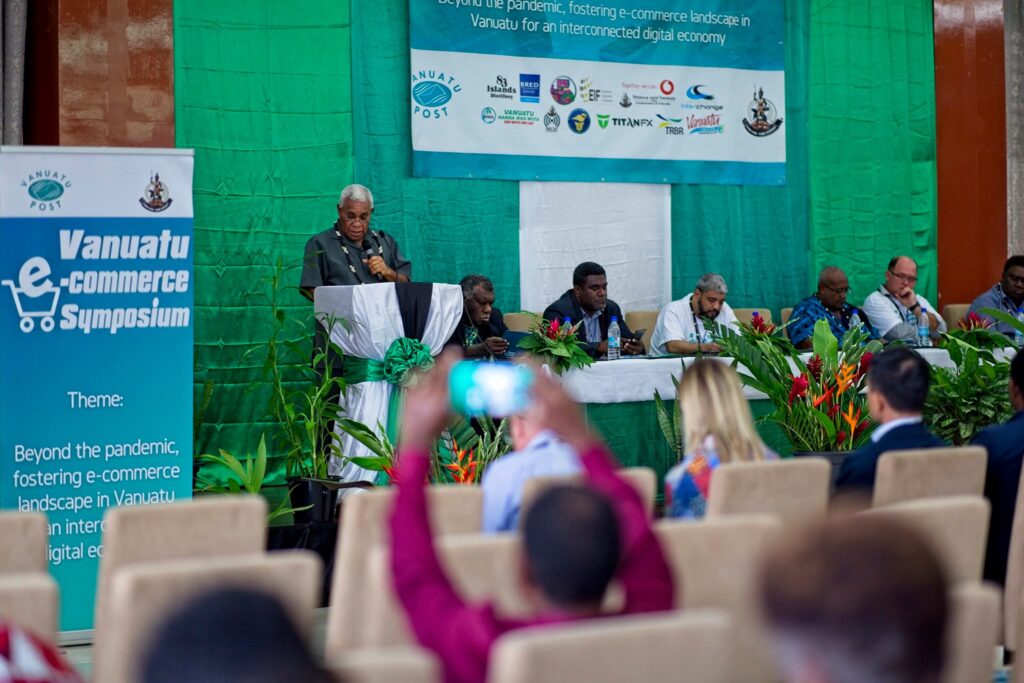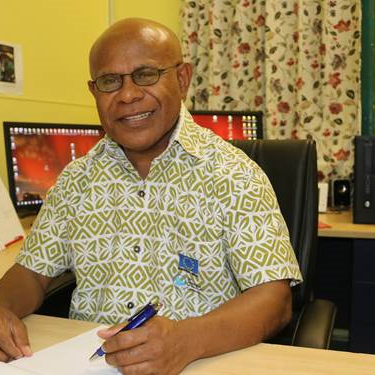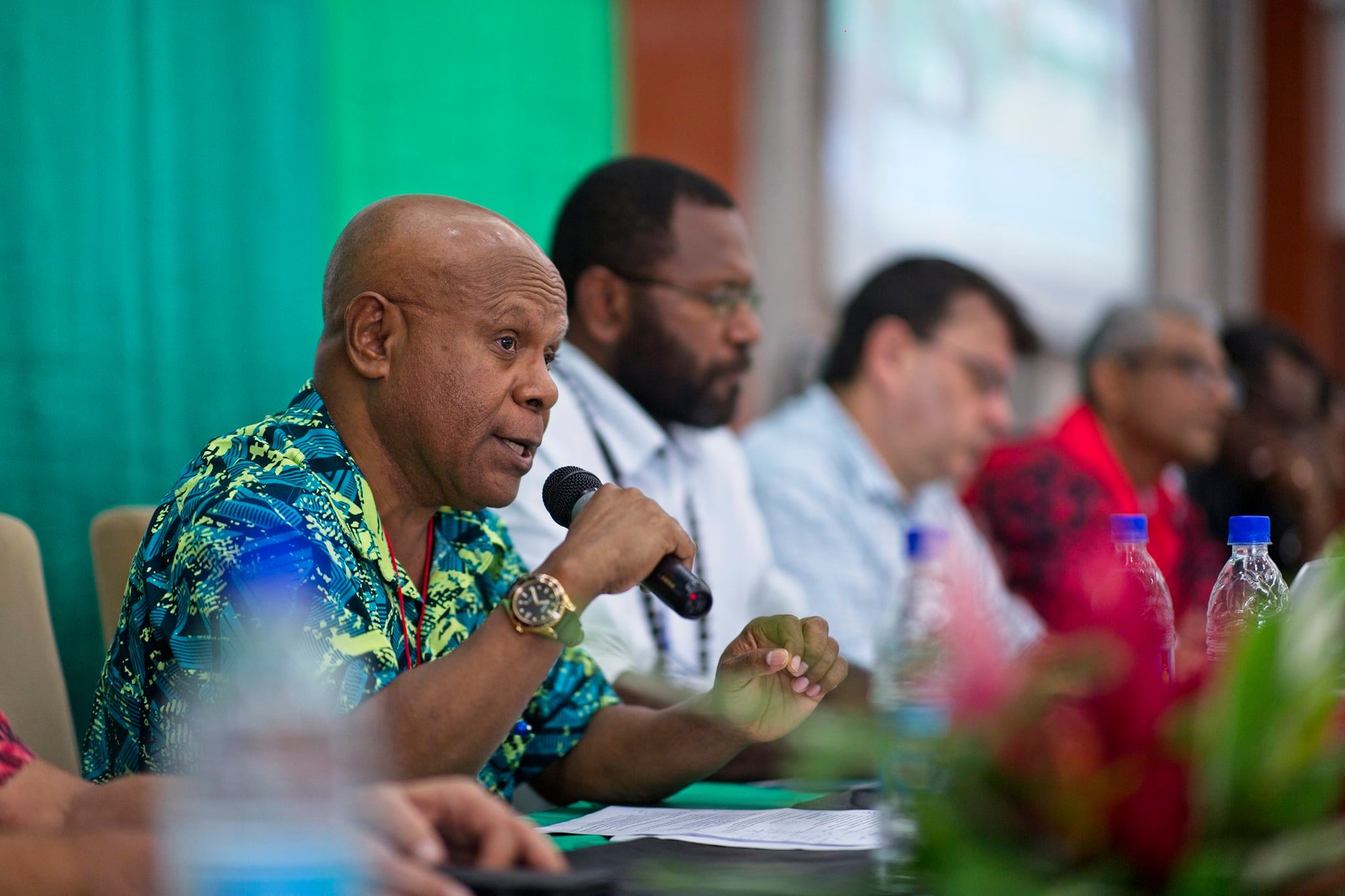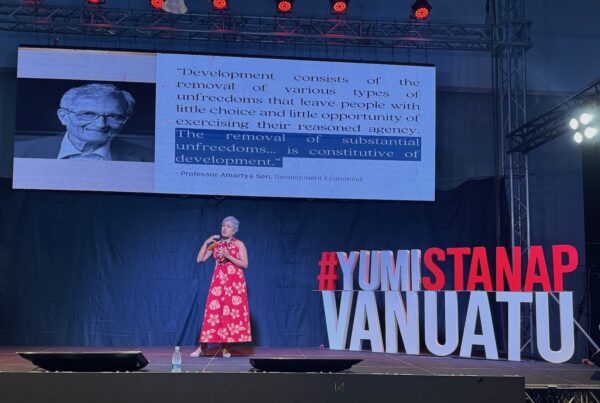By Howard Aru
The first-ever e-Commerce Symposium hosted by Vanuatu Post (VP) last week was perfectly timely. Congratulations and Thank You VP! Of course VP needed to remain relevant in an era of high speed technological developments and innovation.
But the bigger picture wasn’t all just about VP. It was about all of us put together. The world has moved on from its business-as-usual ways of doing things (modus operandi) – an issue which our former Director at Trade in the 1990s used to refer to as ‘Turtle Slow’. In today’s terms, we might as well slot in the word ‘super’ to the phrase: Super Turtle Slow (STS). You may laugh or grin about this, but that’s exactly how a lot of Government officials operate. They sit on paperwork and on important decisions and take between forever and eternity to process very simple things for which at times the pathway may have already been spoonfed to them.
It doesn’t require a Masters Degree, PhD or rocket science, but rather plain, simple, action! Some hide behind fancy job ‘titles’ which often appear to make them feel like minor gods when they’re not. We’ve been appointed into those positions to drive development, get things done and to deliver results, especially in the current very difficult economic environment that we’re now confronted with.
Deeper Reflections on the Symposium
The Symposium has brought out a tremendous amount of food for thought that must lead us to decisive action(s) over the coming months/years. Immediately after TC Pam in March 2015 the Government, in its wisdom, pumped in several millions into a particular ‘infant industry’ in order to help sustain it, boost production and ensure growth of the industry. Despite inherent and external challenges, the industry has grown. Why? Because the Government took decisive leadership by strategically investing in it. That’s exactly what needs to happen with our ‘infant’ ICT sector in Vanuatu.
Whilst it is important to invest in physical infrastructure, how about commit much more funding to improving certain aspects of our infant ICT-industry as we did back in 2015 with the productive sector? Put it another way, how much have we invested in the ICT infrastructure of this country as compared to our physical infrastructure projects? Any comparative stats? When Vanuatu Post or another entity hosts the 2022 e-Commerce Symposium, the highlight has to be about delivering your software or apps before the audience, uploading developers’ apps into our mobile phones, etc, as expressed to me by an innovative private sector colleague last week. That’s where we need to be a year from now.

ICT Incubators, ‘By Ni-Vanuatu, for Ni-Vanuatu’ and Poor Organisational Leadership
At the Symposium we discussed ICT innovation incubators. The private sector, through the Yumi Wok/V-Lab initiatives have already initiated this concept of “incubators”. All that the Government needs to do is partner up with them possibly via a public private partnership (PPP) agreement to bring the much-needed training to our local entrepreneurs if we really want to give effect to the ‘by Ni-Vanuatu, for Ni-Vanuatu’ policy. If we only have less than ten (10) software engineers in the country today and that training and capacity development are key to our common advancement, why can’t the Government partner up with Yumi Work/V-Lab as it did post-TC Pam to grow a particular private industry? We need decisive action. Mere rhetoric will not cut it.
All the other important initiatives accepted by the Government during the Symposium such as payment gateways and blockchain technology for business are also very important to pursue proactively over the coming months through the NIDC, NTDC and other relevant forums.
BUT (yes, in capital letters!) what is required is LEADERSHIP, leadership and more leadership from Government agencies if we’re seriously genuine about development by Ni-Vanuatu for Ni-Vanuatu. Our nationalistic ideals cannot just be expressed by our leaders. Heads of agencies such as CEOs, DGs and the those Directors have to show commitment to materialise our national interests. Quite frankly I am yet to see that happen! Thus far in 2021 I’ve attended and participated at two NIDCs, the 10th ICT Days and last week the e-Commerce Symposium: the majority of those technical leaders were nowhere to be seen.
Are they too busy to commit to ICT as an enabler of productivity, cost effectiveness and competitiveness in their respective organisations and the sectors they lead for a new ‘Developing Country’ like Vanuatu?
Managing a Shifting Economic landscape
Our economic landscape has drastically shifted. When a lot of us first joined the government fresh from Uni in the 1990s there were no laptops, mobile phones, no internet, no emails. Fast-forward 20 years later, we’re in the midst of a radical and stormy technological and digital revolution (TDR) on one hand, while on the other hand our key revenue source such as tourism has been crippled. How times have changed. The question we must now answer is, how are we keeping pace with or adjusting to the processes involved in the present irreversible new normal? Thousands have embrassed the TDR from a ‘social utility’ standpoint but that’s contibuting to zero development. We’ve failed big time to capitalising on the revolution to improve the efficiency and effectiveness of our work. As writer Dr Roberta Lenger Kang puts it, ‘we can no longer sustain a 20th century mindset in a 21st century world.’
Last week a high profile private sector rep emailed me an article on a concept I’ve never heard before – Anticipatory Government. In brief, if we’re not anticipatory in our leadership, we fall behind and we get swamped and we die – figuratively. That’s the fate of the crippled economy in our hands. But what is anticipatory government.
The Powerful Potential of Anticipatory Government
By comparison to other countries, Vanuatu has done very well when it comes to anticipating and preparing for tropical cyclones, notably since the Cat5 TC Pam in 2015. But why haven’t we done the same for the economy in general through the lenses of the ICT/digitisation that have taken us by a storm since Covid-19? Our biggest challenge now is that our new normal is irreversible. We have to live in this new normal and operate in the new normal using the tools excerted and forced on us by the new normal. Our old normal work approaches are outdated. So why are were still slack and uncommitted to change?
Our clogged up bureaucracy is still prevalent. The massive and dreaded red tape still haunts us. We claim “Yumi 40” (well, in exactly 2 weeks time, ‘Yumi 41’), when in practice we’re not. The world has moved on. We need to awake out of our long sleep and start running to catch up with the rest of the world. I will discuss the concept of ‘Anticipatory Government’ in more detail in the next article. Great weekend ahead!

Howard Aru is current CEO of the Vanuatu Foreign Investment Promotion Agency (VFIPA) and former Director General of the Ministry of Agriculture, Livestock, Forestry, Fisheries and Biosecurity, and the Ministry of Health.





